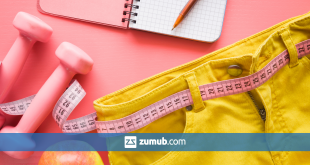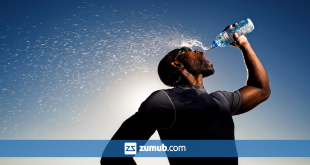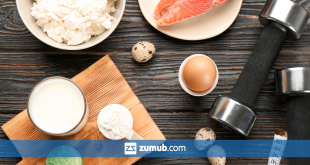
Nutritional interventions performed by a health professional, namely by a nutritionist trained in sports, can help the athlete to achieve his or her goals, such as muscle hypertrophy and/or weight loss. In the world of sports, even if it is more recreational or competitive, an often present theme is the role of proteins and its potential effects such as: is protein good for weight loss? Does too much protein cause weight gain, or is too much of it bad for the kidneys?
Let’s debunk some of these myths that make protein one of the most talked about topics in gyms. 🤯🧐
Is protein good for weight loss?
Several studies show that currently the most effective method for losing fat mass is daily energy restriction, i.e., energy expenditure higher than energy intake. For this energy expenditure to be more easily achieved, physical exercise should be duly advised by a professional.
A correct daily intake of proteins is essential in the weight loss process (loss of fat mass) for the maintenance of muscle mass and a greater feeling of satiety.
That said, proteins are not the miracle formula for weight loss, but calorie restriction is, where all macronutrients are included. Proteins can be an ally because of the feeling of satiety it provides.
Will I gain weight if I take more doses of protein supplementation?
As already mentioned fat mass gain arises from the positive balance between calories ingested and calories expended on a daily basis. If this extra dose of supplement is within the range of energy needs for the day there should be no need to worry. You can swap a food with the same amount of proteins as a dose of supplement.
Is protein bad for the kidneys and liver?
When protein supplements are mentioned, the concern is not only from the general population, but also from the medical community due to the typical claim that proteins will harm the kidneys and liver. What the evidence shows is that this macronutrient only becomes problematic, and properly monitored, when kidney disease is already installed. There is no scientific evidence to support this negative impact on the kidneys and liver when protein intake is within recommendations.
In fact, the known risk factors for kidney disease are hypertension and diabetes. And, processed foods, consumed in large scale by the Portuguese population, are related to the onset of these factors.
Therefore, if we are to evaluate our pantry, certainly the bad guys wouldn’t be the protein powder supplement, the protein bars or the protein yogurts.
 |
|
In conclusion
We should not make proteins something monstrous, because in fact 15-20% of our daily caloric intake should come from this macronutrient.
However, we should understand that a protein supplement is something intended to supplement and complement a balanced diet. According to the 2002/46/CE GUIDELINE, This is intended to help achieve a specific benefit in sports performance and should not be used at all times of the day in the quantities we want, just because we feel like it. When athletes want to consume a certain amount of proteins, but don’t want that full stomach feeling, they opt for supplements, namely the more isolated version of whey, as you can see here.
What did you think about this article? Pretty interesting, uh? Would you like a part II? 🤔
Bibliography
1. Sousa M, Teixeira VH, Graça P. Nutrição no desporto. 2016.
2. NHaMR C. Clinical practice guidelines for the management of overweight and obesity in adults, adolescents and children in Australia. National Health and Medical Research Council. 2013.
3. Burke L, Deakin V. Clinical sports nutrition/edited by Louise Burke and Vicki Deakin fifth edition: McGraw Hill; 2015.
4. Morsch C, Veronese FJV. Doença renal crônica: definição e complicações. Clinical & Biomedical Research. 2011;31(1).
5. Oliveira A, Araujo J, Severo M, Correia D, Ramos E, Torres D, et al. Prevalence of general and abdominal obesity in Portugal: comprehensive results from the National Food, nutrition and physical activity survey 2015-2016. BMC Public Health. 2018;18(1):614.
6. Europeia C. DIRECTIVA 2002/46/CE DO PARLAMENTO EUROPEU E DO CONSELHO de 10 de Junho de 2002 relativa à aproximação das legislações dos Estados-Membros respeitantes aos suplementos alimentares. Jornal Oficial das Comunidades Europeias. 2002:1-7.
 Zumub.com Official Blog Everything about Fitness, Gym, Nutrition and Supplementation. Read articles written by Zumub.com specialists and expert guests.
Zumub.com Official Blog Everything about Fitness, Gym, Nutrition and Supplementation. Read articles written by Zumub.com specialists and expert guests.



